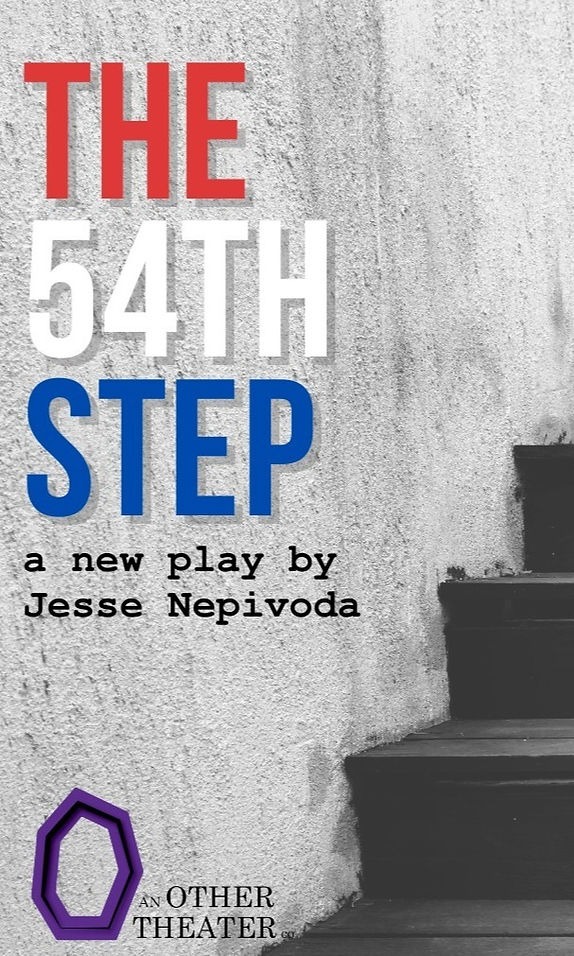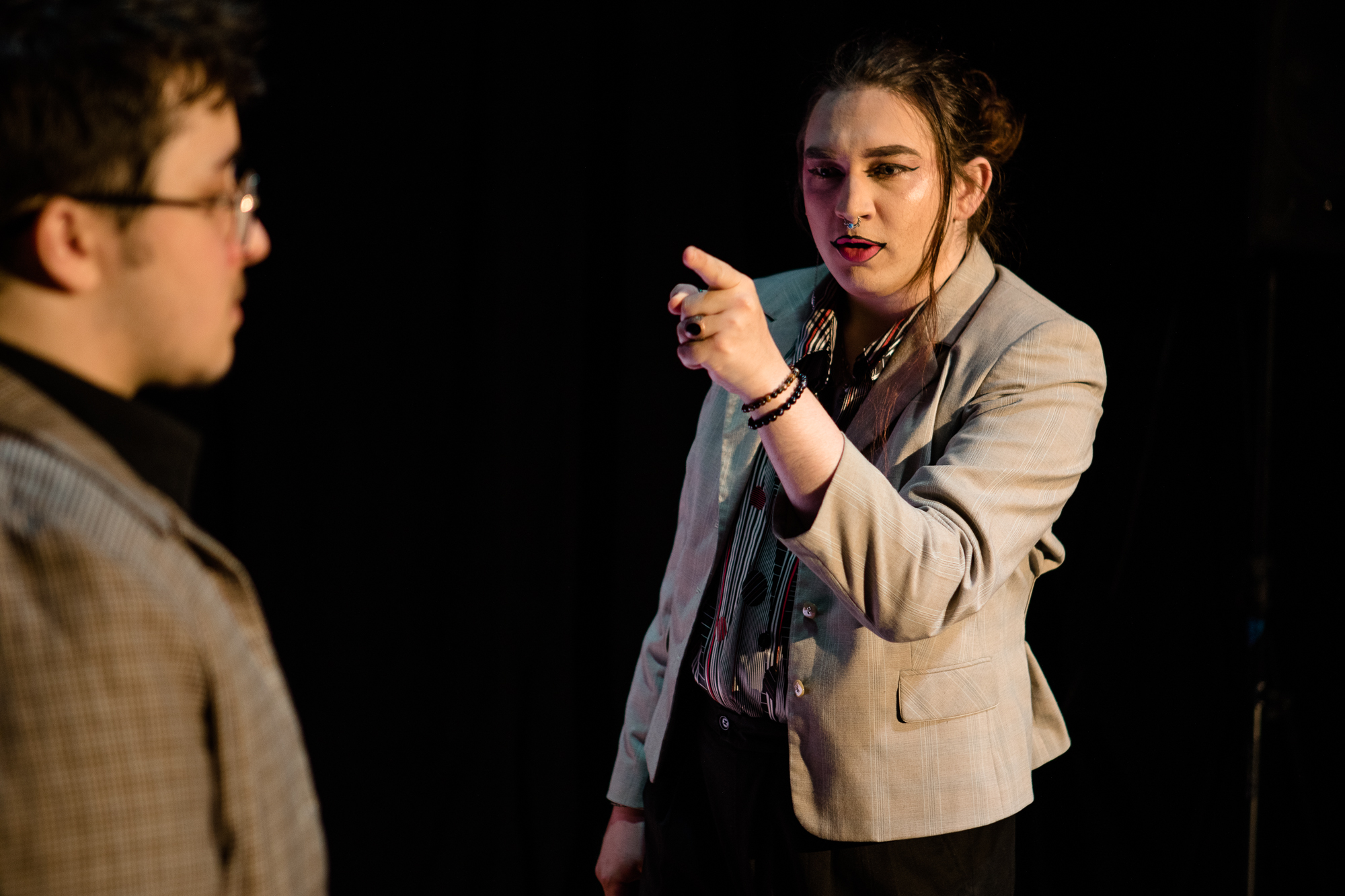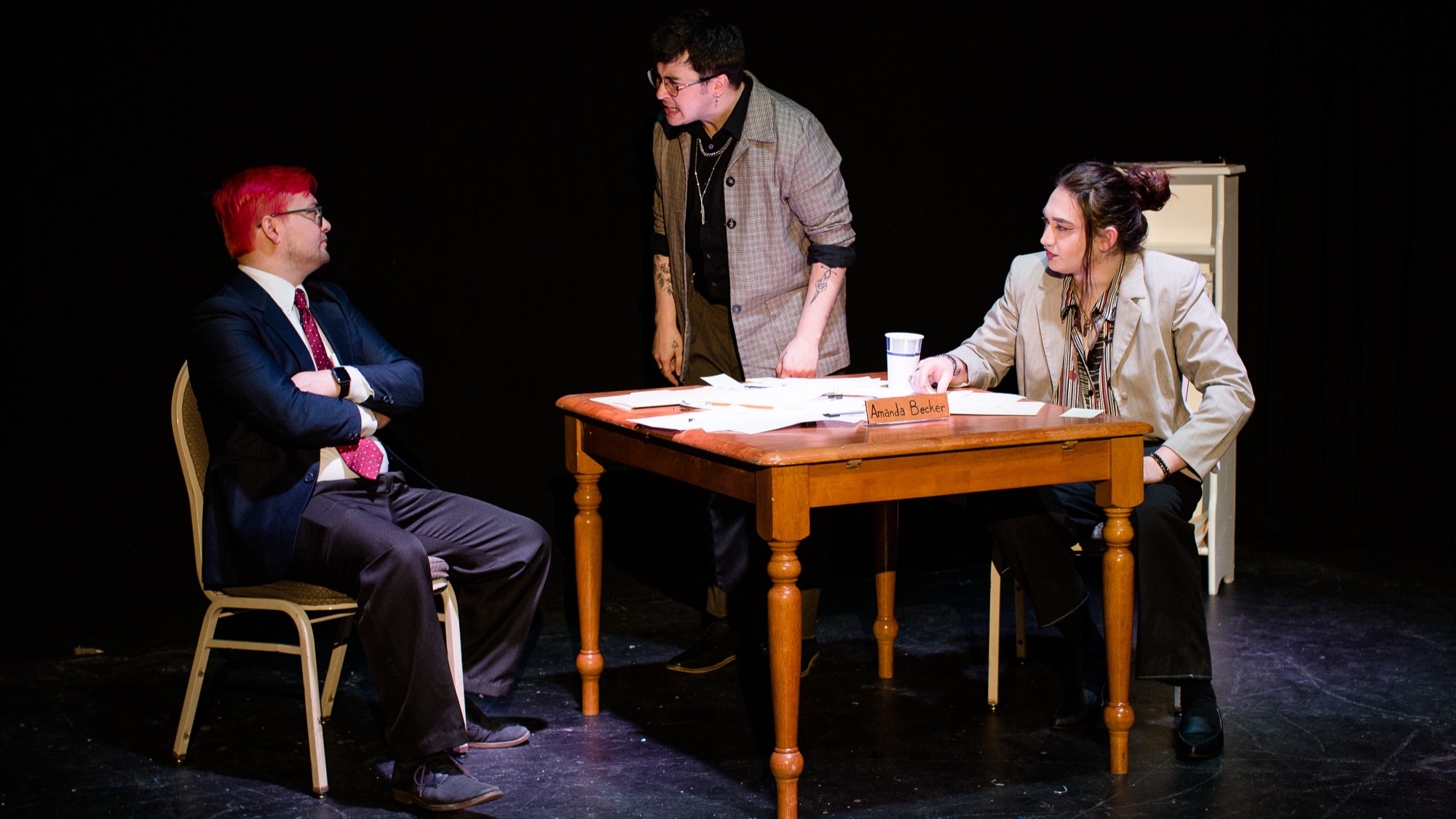
Nepivoda’s script follows the intense final day of, presumably, the most recent Utah legislative session. It should be noted that the characters named in the play are not actual members of the Utah legislature, however some characters are likely analogs for few local politicians. The protagonist, State Representative Amanda Becker, is pushing House and Senate leadership to call for a vote on the anti-bullying bill that she has been working on for six years. The bill is Becker’s passion project, and her dogged effort to get it through has left the rest of her life in shambles. She is struggling with alcoholism and a marriage in tatters, and she has no friends to talk with besides her loyal intern, Mac. As the day progresses in real time, Becker meets with crucial House and Senate leaders in an attempt to wheel and deal her way to a vote, but as her crucial support unravels, so does her mental state.
Nepovida’s rapid fire dialogue is familiar to anyone who watched 1990s political drama, The West Wing. The weakness here being that all the characters sound quite similar and follow their expected trajectories to a T. As the heated conversations rise, I found myself anticipating the next line. However thrilling, it beggared imagination that the elderly Mormon state senator, Benson Christensen, would indulge in the rancorous and profanity-laced conversations depicted or that he would layout, Bond villain style, all his wicked motives quite so clearly. The political agenda of the script, while cathartic, lacks nuance when addressing the rationale (however foolish and cruel it may seem to progressives) of the conservatives who control Utah politics. Furthermore, verbal and physical abuse exhibited by progressive politicians here left me despairing and suspicious of any future good that might come from this version of the statehouse. While there are some intriguing closed-door conversations and relationships depicted between the Democratic and Republican representatives in this script, I was left to wonder if Nepovida actually spoke with anyone who has been in those meetings as part of his research.

[*The following three paragraphs have been edited post publication. Please see end note.]
Director Sammee Jackman has made casting choices that fight against the realism, and I argue, the intention of the script. As I understand the dialogue, Amanda Becker is a cisgender heterosexual woman with a cis-het husband named Mark. Becker is played by Siev Unruh (they/them) and in costume and makeup Unruh presents Becker as a non-binary. Mark, played by Madelyn Pettingill (all pronouns), also presents the character as nonbinary. Unruh and Pettingill, as a frustrated couple who still care for one another, share the most heartbreaking and intimate of the five major scenes.
Adam Gowers (they/them), with bright pink hair, plays the two legislative antagonists, Hughes and Christensen. Gowers’s hair and youth are both fighting against the character’s elderly, conservative Latter-day Saint descriptions. Based on the note in the director’s program, I believe that all these casting choices were made with an eye toward something like gender-blind casting. However, these choices, along with the general inexperience of the actors, weaken their abilities to communicate the message of the play. I have seen many productions where actors have been cast in roles inconsistent with their gender or other visible identities, or where an actor has made a choice to put a non-traditional gender or sexual identity onto a well known character. Such choices have often richly added to my understanding of these roles and the ideas being explored. (In fact, this is on display beautifully in Cabaret which I recently reviewed.) So while I respect and celebrate the choices made by this cast to explore gender presentations in characters that were not explicit on the pages, the intense realism and timeliness of this script pushes back on these acting choices. These characters are engaged in intense discussions about the political importance gender identity and sexuality, and yet, other than Mac, their own lived experiences are not mentioned or even alluded to. This left me questioning if I was understanding the full range of these character’s motives as the script progressed.
Becker’s intern and confident, Mac, is a trans man or perhaps nonbinary. Mac is, at one point, rudely misgendered by the antagonist. Mac is played by Miles Minshew, who uses he/him pronouns. Minshew’s performance as Mac. Minshew, perhaps by virtue of being in the correct age bracket to play his character, brought vitality and life and an otherwise stilted cast. I was baffled by the script’s choice to have Mac continue in his role assisting Becker even as her behavior toward him grows increasingly unhinged. A script centered on Mac’s experience as a young activist or politician dealing with a fracturing relationship with his mentor might make for even more interesting subject matter than Becker’s story.
Gail Wright’s simple set and props fed into the overall feel of a student black box production. For example, the hand-painted quality of the character’s legislative name plates caught my eye immediately as I sat down. The costume design by Lydia Curtis had a few nice details, but also created a gender and fashion deconstruction that seemed very out of place in a highly realistic script set in the halls of the state capitol.
Ultimately, the misalignment between the script and this performance is so perplexing that when the lights came up I was relieved to be back in the disappointing reality of Utah supermajority politics. Certainly Utah has miles to go in protecting the rights and lives of all our people, and especially those who experience the most marginalized identities, but I believe we can do better with our artistic calls to political action than The 54th Step.
*Post publication edit: Following the publication of this review serious concerns were expressed by those involved regarding the ways in which trans bodies were discussed. I have reached out with apology for the pain caused and edited my review to further clarify my thoughts on the production. I wish to share my commitment to seeking increasing understanding of trans issues and creators. May we all learn and grow together in the politics of love as we seek for a more just, safe, and equitable world.
[box]The 54th Step is showing nightly at 8:30 OM through June 20 at Lightree Studios (740 West 1700 South, Suite 5, Salt Lake City). Tickets are available on a “pay what you can” scale, starting at $12 and up. For tickets are more information check anothertheater.org.[/box]

